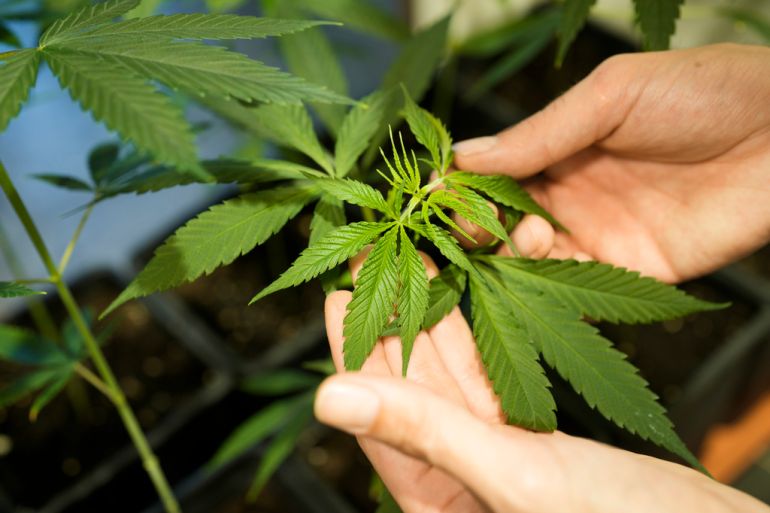Germany legalises cannabis possession for personal use from April
German laws on cannabis use now among most liberal in Europe, but medical experts warn it ‘makes you stupid’.

The German parliament has approved the partial legalisation of cannabis for personal use in a landmark vote that leaves the country with some of the most liberal laws on the substance in Europe.
Lawmakers in the Bundesrat, or the upper house, passed the long-debated bill on Friday, making it legal to obtain up to 25 grams (0.88 ounces) of the drug per day for personal use through regulated cannabis cultivation associations, as well as to have up to three plants at home, when the new rules come into effect on April 1.
Keep reading
list of 3 itemsThailand’s flourishing cannabis culture under threat as gov’t seeks ban
‘Outlaws’: Morocco’s Rif provides refuge for cannabis farmers
The new law, which still prohibits possession and use of the drug for anyone under 18, will leave Germany with some of the most liberal cannabis laws in Europe.
Malta and Luxembourg legalised recreational use of the drug in 2021 and 2023, respectively. The Netherlands, known for its liberal cannabis laws, has been cracking down on sales to tourists and non-residents in recent years.
The cannabis law has been the subject of bitter wrangling within the coalition of Chancellor Olaf Scholz‘s Social Democrats, the Greens and the liberal Free Democratic Party (FDP). In their coalition agreement, the three parties had pledged to go further and allow cannabis to be sold in shops, a move slapped down by the European Union. They are now planning a second law to trial the drug’s sale in shops in certain regions.
In the run-up to the vote, Health Minister Karl Lauterbach, a member of the Social Democrats, called on members of parliament to back the controversial law, arguing that the country had seen a sharp rise in the number of young people using cannabis obtained on the black market.
Simone Borchardt of the opposition Christian Democratic Union (CDU) party, said the new law, fiercely opposed by medical associations, would only increase health risks for young people, accusing the three parties in Scholz’s coalition government of “making policy for their ideology and not for the country”.
The changes, which were passed by the Bundestag, or the lower house, last month, did not formally require Bundesrat approval. However members of the upper house could have called on a mediation committee and slowed down the process.

Divisive
Proponents of the law, such as the German Cannabis Association, say black market cannabis can include sand, hairspray, talcum powder, spices or even glass and lead. Cannabis can also be contaminated with heroin or synthetic cannabinoids that are up to 100 times stronger than natural psychoactive cannabinoids, experts have said.
Steffen Geyer, director of Berlin’s Hemp Museum, expressed relief at the law, saying Germany had become “a little bit more free and tolerant”.
“This is the first step on the road to a rational and science-based drugs policy,” he said.
Health experts opposing the law warned that cannabis use among young people can affect the development of the central nervous system, leading to an increased risk of developing psychosis and schizophrenia. Sustained use has also been linked to respiratory diseases and testicular cancer.
“Chronic cannabis use makes you stupid, to put it bluntly, and can also cause psychosis,” Thomas Fischbach, president of a German federation of doctors for children and adolescents (BVKJ), told the Die Welt newspaper.
“Cannabis use among young people will increase because such substances are always passed on to younger people,” he said. “This could have serious consequences for young people’s physical and mental health.”
The German public is divided on the new law: according to a YouGov poll published on Friday, 47 percent are in favour of the plans and 42 percent are against.